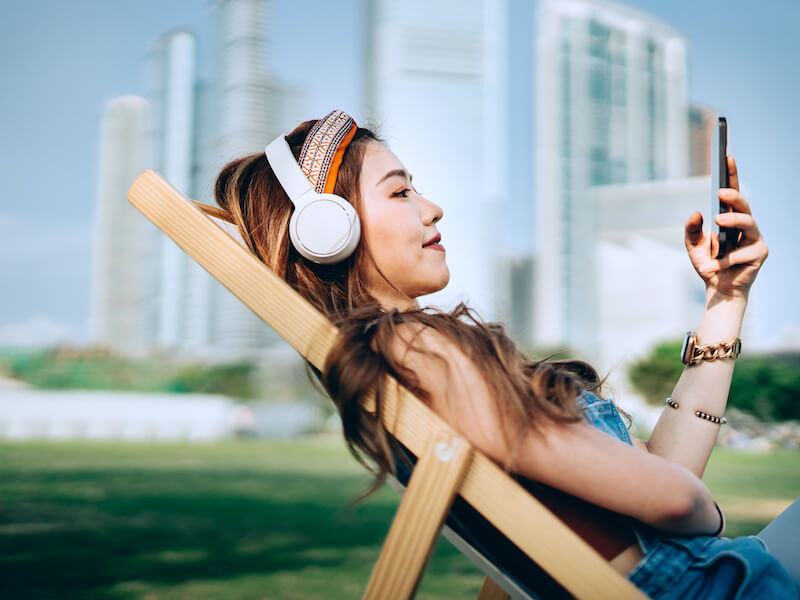
Aiden loves music. While he’s out jogging, he’s listening to Pandora, while working it’s Spotify, and he has a playlist for all his activities: cardio, cooking, video games, you name it. His headphones are pretty much always on, his life a totally soundtracked event. But the very thing that Aiden loves, the loud, immersive music, might be contributing to permanent harm to his hearing.
There are ways to listen to music that are safe for your ears and ways that are not so safe. But the more hazardous listening choice is frequently the one most of us choose.
How does listening to music cause hearing loss?
Your ability to hear can be compromised over time by exposure to loud noise. Typically, we think of aging as the principal cause of hearing loss, but more and more research reveals that it’s actually the accumulation of noise-induced damage that is the problem here and not anything intrinsic to the process of aging.
It also turns out that younger ears are especially susceptible to noise-induced damage (they’re still growing, after all). And yet, young adults are more inclined to be dismissive of the long-term dangers of high volume. So there’s an epidemic of younger individuals with hearing loss thanks, in part, to high volume headphone use.
Is there a safe way to enjoy music?
Unlimited max volume is obviously the “dangerous” way to listen to music. But merely turning the volume down is a less dangerous way to listen. The general guidelines for safe volumes are:
- For adults: Keep the volume at less than 80dB and for no more than 40 hours a week..
- For teens and young children: You can still listen for 40 hours, but keep the volume level below 75dB.
Forty hours every week is about five hours and forty minutes a day. Though that could seem like a while, it can seem to pass rather quickly. But we’re conditioned to monitor time our whole lives so the majority of us are rather good at it.
The harder part is keeping track of your volume. On most smart devices, computers, and televisions, volume isn’t calculated in decibels. It’s measured on some arbitrary scale. Perhaps it’s 1-100. But maybe it’s 1-16. You might not have any idea how close to max volume you are or even what max volume on your device is.
How can you keep tabs on the volume of your tunes?
There are some non-intrusive, easy ways to figure out just how loud the volume on your music really is, because it’s not very easy for us to contemplate exactly what 80dB sounds like. Differentiating 75 from, let’s say, 80 decibels is even more perplexing.
That’s why it’s highly recommended you use one of many cost-free noise monitoring apps. Real-time readouts of the noise around you will be available from both iPhone and Android apps. In this way, you can make real-time alterations while monitoring your actual dB level. Your smartphone will, with the proper settings, let you know when the volume goes too high.
The volume of a garbage disposal
Your garbage disposal or dishwasher is usually around 80 decibels. So, it’s loud, but it’s not that loud. It’s a relevant observation because 80dB is about as loud as your ears can cope with without damage.
So you’ll want to be more aware of those times at which you’re going beyond that decibel threshold. And limit your exposure if you do listen to music over 80dB. Perhaps listen to your favorite song at max volume instead of the whole album.
Over time, loud listening will cause hearing problems. You can develop tinnitus and hearing loss. Your decision making will be more informed the more mindful you are of when you’re going into the danger zone. And safer listening will hopefully be part of those decisions.
Call us if you still have questions about the safety of your ears.